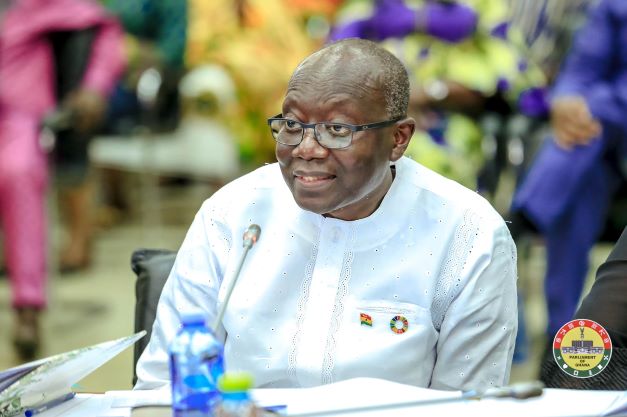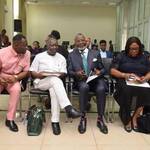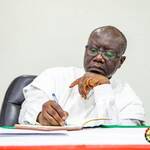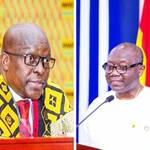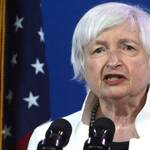Minister of Finance Ken Ofori-Atta in a 33-page response has rejected all the accusations levelled against him as the grounds for a censure motion against him.
He started his defence with an apology to Ghanaians over the current economic hardships.
He then went on to deny paying for the National Cathedral from Contingency Fund, provided data to demonstrate that current economic crisis is the result of external factors and not mismanagement, denied deliberately misreporting data to Parliament and also elaborated on the achievements of government since 2017.
He gave detailed accounts when he appeared before the Ad-hoc Committee of Parliament set up by Speaker Alban Bagbin to probe the allegations for the motion of censure raised against him by the Minority.
Apology
Ofori-Atta said it is not the government’s intention to put Ghanaians through any form of hardship.
“I feel the pain personally, professionally and in my soul…I see and feel the terrible impact of rising prices of goods and services on the lives and livelihoods of ordinary Ghanaians, I feel the stress of running a business, but it is the strength and perseverance of the Ghanaian people that inspire me and my colleagues in government every morning.
“That is what gives me the strength to press on and to find solutions and relief for Ghanaians to the myriad of problems that our country and the rest of the world are facing, especially since March 2020. Co-chairs, let me use this opportunity to say to the Ghanaian people what I believe, with courage, every finance minister around the world, may wish to say to their people now: ‘I am truly sorry,” he said.
Economy not mismanaged
Ofori-Atta pointed out that the Akufo-Addo administration inherited a bad economy but improved all the indicators in the first three years.
Fiscal operations cautiously supervised
He said he has cautiously supervised the country’s fiscal operations and has not been reckless in the management of finances.
According to him, government made great strides and remarkable progress in the years before exogenous factors such as COVID-19 pandemic and Russia-Ukraine war reversed the progress.
He explained that with the onset of the pandemic and later Russia-Ukraine war, the gains from over three years of fiscal rectitude were reversed as result of efforts to ensure lives and livelihoods were protected.
State of the economy as at the end of 2016
At the close of 2016, an assessment of the economy revealed a limited fiscal space with fiscal deficit of 6.5%, a distressed financial sector recording 17.3% non-performing loans ratio, a derailed International Monetary Fund (IMF) Extended Credit Facility (ECF) programme and reduced economic output of 3.4% Gross Domestic Product (GDP) growth.
Also, inflation was 15.4%, Monetary Policy Rate (interest rate) was 25.5% coupled with limited Capital Expenditure (CAPEX) to Ministries, Departments and Agencies (MDAs), and ‘Dumsor’ which had decimated local industry and strongly impeded national productivity.
Economic growth doubled in 3 years
However, Ofori-Atta said the government doubled economic growth in its first three years, and Ghana’s growth in 2019 was touted as one of the highest globally.
Inflation dropped to 7.9%
He stated that inflation came down significantly from 15.4% to 7.9% at the end of 2019 and remained in single digits till the pandemic hit in March 2020.
Fiscal deficit was under 5%
Also, he noted that fiscal deficit which was about 6.5% was brought down to under five percent by the end of 2019.
Exchange rate depreciation averaged 8.7%
He stated that exchange rate depreciation reduced significantly to under five percent in 2017 and averaging 8.7% between 2017 and 2019.
9.5% (950) basis points reduction in interest rates
The Finance Minister said the government reduced interest rates in line with declining inflation expectations while Monetary Policy Rate declined from 25.5% at the end of December 2016 to 16% at the end of 2019.
Average lending rate declined to 23.7%
He added that the average lending rate for the same period declined from 31.70% to 23.7%.
Banking sector cleanup costs GH¢25bn
Ofori-Atta stated that government directly spent GH¢25 billion to save the banking and SDI sector, protecting the near collapse of the financial sector; saving close to 5,400 direct jobs and 12,000 indirect jobs and ensured that 4.6 million depositors were protected.
Energy sector reforms kept the lights on to-date
According to him, government also implemented comprehensive reforms across the energy sector and kept the lights on to-date.
Govt exited IMF in April 2019
The Finance Minister noted that on the back of good economic management, Ghana successfully completed and exited the IMF-ECF bailout programme in April 2019.
Measures to prevent irreversibility of macroeconomic gains
To ensure irreversibility of the macroeconomic gains, he said government introduced a number of measures including passage of the Fiscal Responsibility Act, 2018 (Act 982) to cap the fiscal deficit at 5% of Gross Domestic Products (GDP) and ensure maintenance of positive primary balance.
Ofori-Atta pointed cited the passage of the Public Financial Management Regulations, 2019 (LI 2378) to strengthen regulation of the Public Financial Management System, establishment of the two Social Partnership Programmes with Labour and Faith-Based Organisations, among others which shows strong momentum and optimism towards Ghana Beyond Aid agenda at the end of 2019.
Deliberate data misreporting claims completely false
The Finance Minister categorically denied dishonestly misreporting economic data to Parliament saying the allegation of deliberate misreporting of economic data to Parliament is completely not true.
IPP, FINSEC payments reflected in fiscal framework
Contrary to the position of others that the Ministry did not reflect the Financial Sector Cleanup (FINSEC) payments and the energy sector Independent Power Producers (IPP) payments in the fiscal framework, he emphasize, with the Budget document as evidence, that these payments were reflected in the fiscal framework.
The minority based their accusation of deliberate misreporting of economic data to Parliament on grounds that the financial sector clean debt and IPP payments were excluded from public debt.
According to the minority, by treating these debts differently, the fiscal deficit is reduced to make economic indicators good.
IPP payments included in amortization under Fiscal Framework
But, Ofori-Atta said the Ministry included IPP payments in the “amortisation” line in the Fiscal Framework during 2018-2021.
$500m a year excess capacity charges payments
He noted that energy sector Excess Capacity payments of GH¢17 billion, relate to a legacy of take or pay contracts.
He stated that government had to pay around $500 million a year in excess capacity charges, for power the previous administration negotiated that the country did not need and does not use.
The Finance Minister stated that the energy sector IPP payments were reflected in the fiscal framework as part of the Amortisation line under the Financing part of the fiscal table.
Issuance of bonds to cover the non-cash cost
Similarly, he said the financial sector clean-up costs were included in the fiscal framework annually for the period 2018 to 2021 to reflect the issuance of bonds to cover the non-cash cost.
Extra-ordinary payment items
Ofori-Atta explained that these are extra-ordinary payment items which need not be mixed-up with traditional fiscal operations.
He explained that these are largely bonds and capturing them above the line will imply recognizing their payments now and recognizing their payments again when the payments fall due in the future – a possible double counting.
He noted that these are debts of State Own Enterprises (SOEs) that have been assumed by Government and are largely contingent liabilities that have crystalised for payments.
Ofori-Atta explained that the FINSEC bailout exercise is largely completed and, therefore, ceases to be an extraordinary budget item.
On the other hand, he said IPPs payments are expected to be made over the medium-term and given that they have become explicit contingent liabilities, appropriately budgeting for them “above the line” ensures that resources are duly allocated for their settlement.
He stated that the Ministry agreed with the Finance Committee of Parliament in 2021 that going forward from 2022 onwards, both the IPP and FINSEC payments will be treated “above the line” in the fiscal framework.
Style of reporting to IMF
According to him, the agreed style of reporting to the IMF was to show both a deficit including FINSEC clean-up and one excluding it.
According to him, there have been significant improvements in the accurate reporting of public finances and Ghanaians are enjoying greater accountability and transparency in the management of the public purse than any other period.
National Cathedral payments lawful
On payments for National Cathedral, Ofori-Atta said it was lawfully done.
According to him, the payments were made from the Contingency Vote under the “Other Government Obligations” vote and not from the Contingency Fund as alleged by the Minority.
“I have taken no money from the Contingency Fund to make payments for the National Cathedral,’’ he stressed.
The Finance Minister explained that the Contingency Vote is a line under the “Other Government Obligations” vote which is approved by the Finance Committee and passed as part of the annual Appropriation Acts.
According to him, in preparing the Annual Budgets, the practice is that provision is made for indicative expenditure that have not been fully costed at the time of the Budget presentation and provisions are made in the Contingency Vote to cater for such expenditure.
For example, he said there was no specific allocation in the 2014 budget for Ghana’s participation in the FIFA World Cup in Brazil.
However, he said the Cabinet of President John Mahama, in March 2014, approved some $9.622 million for that tournament, including that amount which was flown to Brazil in a private jet for the players.
He added that a more current example is Ghana’s participation in Qatar as the Black Stars qualified for the 2022 FIFA World Cup, way after the 2022 budget, presented on 16 November 2021, was approved by Parliament.
Ofori-Atta noted that no specific amount was budgeted for it but through the Contingency Vote, government has been able to provide funds legitimately for the team to participate in the competition.
In the same vein, he said expenditures in respect of the National Cathedral were made from the Contingency Vote under the “Other Government Obligations” vote as has been the practice before his tenure, assuring that he has copies of several payments from the Contingency Vote dating back to 2015 to share).
He explained that the National Cathedral is 100% owned by the State and is not the President’s Cathedral as described by the minority saying the Attorney General issued an opinion on January 6, 2022 which said the National Cathedral is a state-owned company limited by guarantee, under the Ghana Museums and Monuments Board.
The Finance Minister noted that in paragraph 156 of the 2019 Budget Statement and Economic Policy, he announced on the floor of Parliament, government’s vision for the National Cathedral as well as the commitment to facilitate the construction by providing the land, the Secretariat, and seed money which constitutes policy approval of the Budget after the extensive debate.
Subsequently, he said regular updates on the progress of the construction of the National Cathedral have been provided to Parliament and the nation.
Ofori-Atta noted that Paragraph 385 of the 2020 Budget Statement and Economic Policy announced the establishment of the Board of Trustees and Secretariat for the Cathedral.
He also cited Paragraph 279 of the Mid-Year Review of the 2020 Budget Statement: which provided an update on the ground-breaking ceremony held on March 5, 2020 to mark the formal commencement of the construction phase of the project.
According to him, Paragraphs 1132 and 1134 of the 2021 Budget Statement and Economic Policy informed the House of the Letter of Intent (LoI) signed on November 25, 2020 between NCG Trustees and RIBADE JV (led by Rizzanni de Eccher with M Barbisotti & Sons and Desimone.
The Finance Minister explained that the same budget announced the Appointment of Apostle Prof. Opoku-Onyinah as new Chairman of the Board of Trustees on February 8, 2021.
He said Paragraphs 354 and 355 of the Mid-Year Review of the 2021 Budget Statement announced the expansion of the Cathedral project to include a Bible Museum (Bible Museum of Africa – BMOA) and Biblical Garden; as well as the establishment of the 100-Cedis-a-Month “Ketewa Biara Nsua” Club, in line with the original plan to encourage as many donors as possible to contribute towards the establishment of this national monument.
The Committee exempted Ofori-Atta from answering to conflict of interest and alleged illegal payment of oil revenues into offshore accounts in flagrant violation of Article 176 of the 1992 Constitution.
Exempted from conflict of interest
In a submission during his first appearance, the Finance Minister’s lawyer Gabby Asare Ochere-Dark cited a case where his client was taken to court over the issue of conflict of interest, and that the matter travelled all the way to the Supreme Court and judgement was given in his client’s favour.
The Committee upheld his objection that conflict of interest did not lie in the purview of Parliament to deal with the issue.
Exempted from alleged illegal payment of oil revenues into offshore accounts
Both the Public Interest and Accountability Committee (PIAC) and the Ghana National Petroleum Corporation (GNPC) appeared before the Committee on Thursday, November 17, to give their sides of the story concerning alleged illegal payment of oil revenues into offshore accounts in flagrant violation of Article 176 of the 1992 Constitution.
After hearing from both organisations, the Committee decided to exempt the Finance Minister from answering the question.
